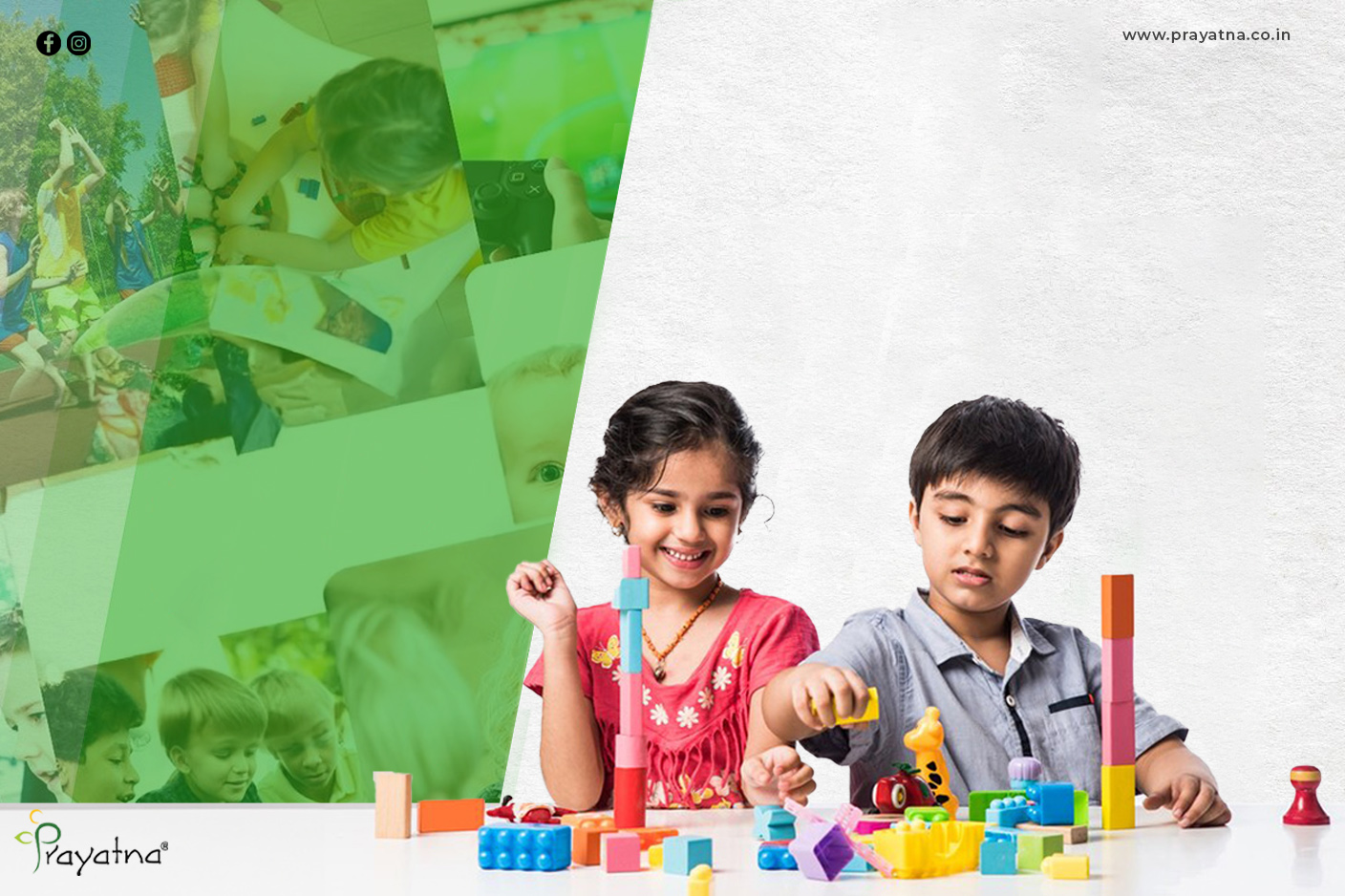
Written By
Mrs. Hudha Haris
Psychologist
M A Psychology
It starts at home.
It’s something we’ve always been told. Kids absorb everything around them like sponges.
You would want your child confidently walking up to a gaggle of kids, making new friends every now and then, sharing toys without a fuss, being the understanding one in their little group. It does sound ideal, but it’s not as far-fetched as it seems. Your junior is either standing at the edge hesitantly, shooting you shy glances, or a chatterbox who simply loves to talk, but sometimes, well, maybe a bit too much!
Eitherways, It Matters.
Social skills aren’t just about being polite; they’re the building blocks of strong well-nurtured, healthy relationships. Kids are better equipped to overcome the speed bumps ahead down the road, once they’ve learnt to communicate effectively, cooperate, and empathize.
Walking the Talk
Children observe. A lot.
From a young age, they watch how their parents interact with other people—how they converse, what actions they use the most, how they react to situations. This lays the groundwork and subsequent stepping stones for their own cognitive evolution. Because this point right here, is where they begin copying your attitudes and behaviours, mimicking every interaction their minds can recall.
Research finds that children with parents who are highly involved in their lives show better social skills and fewer problem behaviors. [El Nokali et al. (2010)]
Try to demonstrate positive social interactions, with little acts of kindness, love and empathy. Focus on being a compassionate listener to them as well as others, especially in their presence.
Playtime Power-Ups
Be their partner-in-crime. Here’s an important aspect of social skills we often overlook: coordination. It’s as simple as building a sandcastle together or creating a collaborative artwork, like a team of superheroes working together to save the day.
Bricks and blocks and puzzles and boardgames require teamwork and problem-solving.
Do not forget to let their imaginations go wild.
Roleplaying scenarios like visiting a store or a restaurant, or the doctor, helps instill the idea of turn-taking and patience. As these instances naturally involve waiting in line and reading the room, it provides children with real-life practice in social situations where they must share space and time with others. Use props (puppets, dolls, stuffed animals, etc.) to illustrate funny little disagreements and how to resolve them.
It’s not simply a game of self-expression, but a hands-on approach of fostering a sense of cooperation, understanding and conflict resolution skills.
Today a Reader, Tomorrow a Leader
As you read together, ask your child open-ended questions about the characters’ feelings. For instance, “What do you believe the character’s current emotions are? What makes them feel that way in your opinion?” This cultivates empathy in children and aids them in emotional comprehension. Make them think critically about social interactions:
“How may someone in the story help that character feel better?”
Even when watching movies together, or the news, make sure to discuss what you’re watching, and analyze the depth of their comprehensive skills.
If your child has school assignments, invite his/her friends over, and teach them the art of working together, negotiation and compromise skills.
The Joy of Giving
Create opportunities for your toddler to share what means the most to them, like toys, snacks, or even time with their siblings, friends or less fortunate children. Teach them the idea of how sharing does not equate to the dividing of possessions, but that it is a superpower that lets you magically multiply happiness.
Praise them when they share, reinforcing the positive behavior. More importantly, set an example yourself.
Nurturing Little Community Heroes
Start small. Sit with your child to pack up old toys, clothes and utensils. Drive up together to a charity center. Or schedule a weekend to volunteer at a local food bank.
Remember to choose age-appropriate activities that align with their interests: While younger children might find visiting a nursing home or helping at a local animal shelter rewarding, older children might enjoy volunteering at a library, tutoring younger students, or participating in environmental clean-up projects.
Now, for the most important part:
Talk about it.
When you get home, ask your child how they feel about the experience and share your thoughts too. This not only inspires them but also polishes your bond with them.
Build these little acts into your family routine. By volunteering together, you can create lasting memories and teach your child civic responsibility at a blossoming age and the importance of giving back to the community. It’s an enduring gift.
Beware of the Screen
All this, but in a digital age where it’s practically impossible to bring up children who are not glued to their screens for less than a few minutes? Sounds a bit too challenging.
The real aim now is to focus on encouraging real face-to-face interactions.
When in conversation, put all devices away. Show them the importance of being there, present – not just physically but mentally attentive. Set specific restricted “bonding” times during the day or week when all screens are turned off, during family meals, game nights, or outdoor activities.
Social skills are not learnt in a day.
These are naturally acquired one after another, polished continuously through experiences and connections. It is through these connections that they gain confidence, enough for their interaction with others and contribution to society.
But the foundation of it all lies in childhood. The lessons learned in these formative years will serve them well throughout their lives, reinforcing the importance of the early parent-child dynamic in social development. Through positive interactions, emotional awareness, and conflict resolution, you’ve cracked the secret recipe to raising socially responsible individuals.
It all starts at home.
Share us your stories, insights or questions. In any case, do not hesitate to seek help from mental health professionals.
REFERENCES
El Nokali, N. E., Bachman, H. J., and Votruba-Drzal, E. (2010). Parent involvement and children’s academic and social development in elementary school. Child Dev. 81, 988–1005. doi: 10.1111/j.1467-8624.2010.01447.x
Liu, H., Qiu, Y., & Luo, L. (2022). Exploring family educational involvement and social skills in Chinese preschoolers: The moderating role of parent-child relationship. Frontiers in Psychology, 13. https://doi.org/10.3389/fpsyg.2022.911421
Riley, D., San Juan, R.R., Klinkner, J., &Ramminger, A. (2008). Social and Emotional Development.
Supporting Young Children: Building Social Skills in
Young Children. (n.d.). ECCP.
https://www.eccpct.com/Resources/Child/Tips-for-Tots/
Building-Social-Skills-in-Young-Children/

